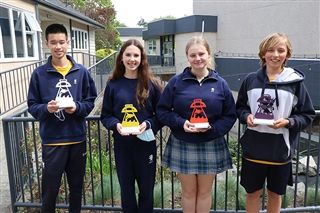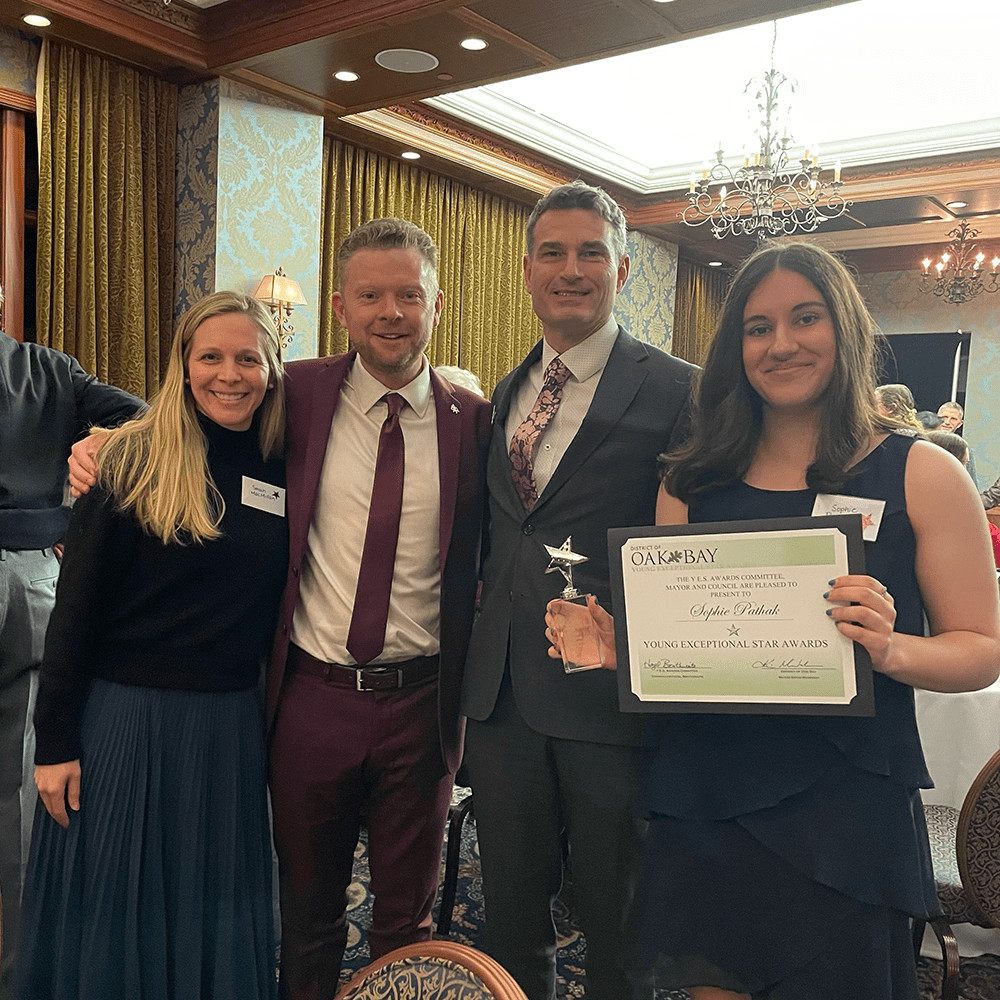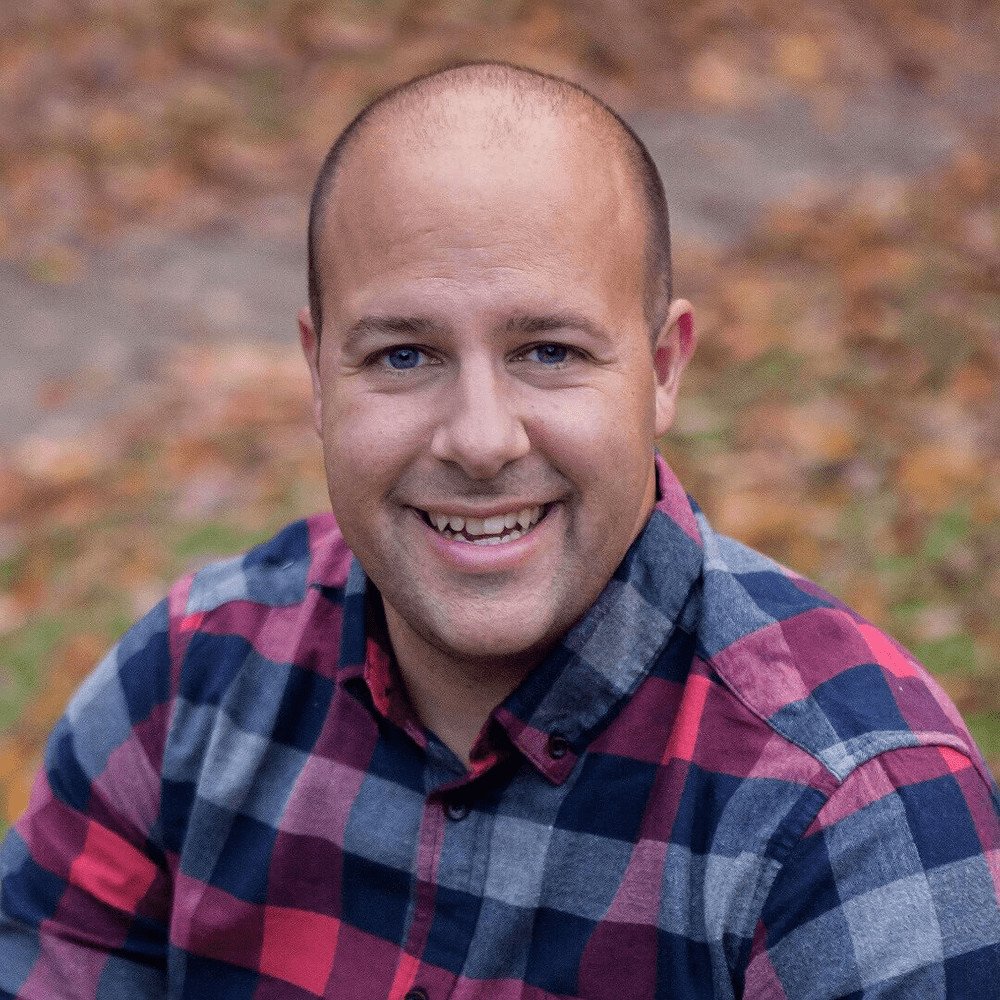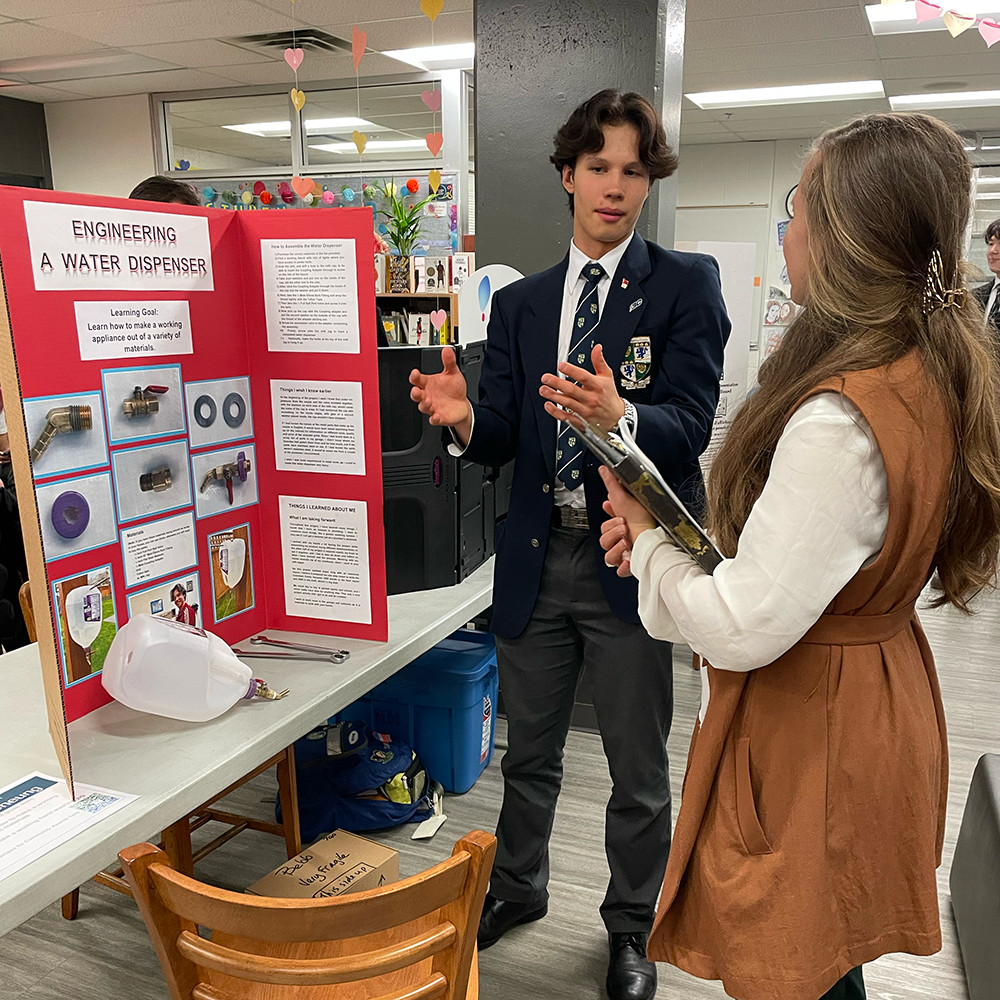Grade 9 students Erin Plecas, Katharine Morley, Joseph He and Evan Papps all participated in the week-long virtual event that is the country’s largest annual youth science, technology, engineering and mathematics event.
2022 was the 60th anniversary of the Canada-Wide Science Fair that ran virtually from May 16 to 20 from Fredericton, New Brunswick. Katharine and Evan both earned awards at the event.
Evan’s project was titled ‘Can slime mold adapt and communicate?’ won a Western University Scholarship and Excellence Award – Silver.
“Slime mold is this cool organism. It’s eukaryote and it’s single celled but works to form a multicellular structure,” he explained. “I decided to test if it could withstand a deterrent and if it could improve when re-exposed to it.”
Evan learned about slime mold over the summer, which influenced him when it came to decide on a science fair project.
“I thought it would be useful to know to what extent you can push microorganisms, specifically to get more research into the fields of nanotechnology, microbiology and the potential for microorganisms to survive in harsh environments,” he said.
Katharine’s project ‘Coagulant conundrum: Exploring the efficacy of natural and chemical coagulants on microplastics,’ was awarded the Nanotechnology for Sustainable Society Award, Excellence Award – Bronze and a Western University Scholarship.
“It went surprisingly well,” said Katharine. “It was a great feeling to win the awards and it felt really good that all my hard work paid off in the end.”
Katharine’s project was looking into coagulation with microplastics, which is a possible way to remove them from water.
“My twist on it was that I compared and tested a natural material and a chemical material to see how effective they were compared to each other,” she explained. “Each of them proved to be effective in different pH levels of water.”
Katharine started thinking about her project in December, and continued to work on it up until the science fairs. She decided she wanted to focus on microplastics because of the growing concerns over them.
“We still don’t know all the effects of them, so we want to find a way to remove them from our environment because there are many health risks and risks to the environment that they pose,” she said. “I wanted to find a way to remove them from the waters, especially because I’m really passionate about oceans and we live so close to a beautiful ocean. I wanted to find a way to remove them and coagulation is a method that is being looked into.”
After spending many hours on her project, Katharine shared some advice for other students who are looking to compete in the science fairs next year.
“Make sure you pick something you are passionate about because it is a lot of work,” she said. “If you run out of fuel partway through you might not be as motivated to finish it to your best. So, choose something you are passionate about and can make the world a better place.”
To move on to the Canada-Wide Science Fair, students had to first participate in the Vancouver Island Regional Fair. Eleven GNS students did a wonderful job sharing their knowledge at this event. The results of the regional science fair are below:
Joseph He
Project: Using Neural Networks to Classify Garbage
3rd Overall, Advanced to Canada-Wide Science Fair
NSERC Young Innovators Award
UVic Engineering Award
PARC Award
Katharine Morley
Project: Coagulant Conundrum: Comparing the Efficacy of Natural and Chemical Coagulants
5th Overall, Advanced to Canada-Wide Science Fair
Julia Lane Award
Canadian Meteorological and Oceanographic Society Award
Ocean Networks Canada Award
Rotary Environment Award
Evan Papps
Project: Can Slime Mold Adapt and Communicate?
6th Overall, Advanced to Canada-Wide Science Fair
BC Nature Award
Victoria Natural History Society Award
Erin Plecas
Project: ADHD in Classrooms
7th Overall, Advanced to Canada Wide-Science Fair
Julia Lane Award
Kevin Lim
Project: SODIS Water Bottle Holder
2nd Place Senior Division
Isaac Yu
Project: Aerodynamic Drag Reduction with Vortex Generators
3rd Place Senior Division
Alumni Award
Sophie Jolivet
Project: Generating Electricity from the Waste Heat Created in Composting
2nd Place Junior Division
Women in Engineering and Geoscience Award
BC Institute of Agrologists Award
Schneider Award
Ibrahim Khurram
Project: Can We Measure Agitation and Aggression in Patients with Severe Autism Spectrum Disorder?
4th Place Junior Division
Phoebe Dendes
Project: Algae Power! Can Marine Algae be used to Produce Electricity in a Photovoltaic Cell?
BC Hydro Power Smart Award
ASHRAE Award
Schneider Award
Daniel Bekker
Project: Measuring Distance through Bluetooth EMR
Junior Division Special Mention
Alumni Award
Zoe Carroll
Project: Climate Change and Plant Growth
Junior Division Special Mention





